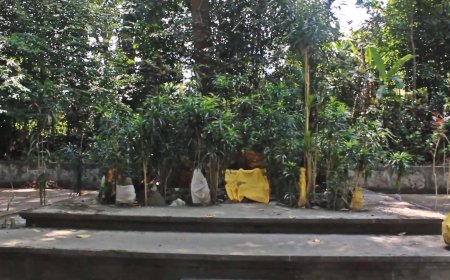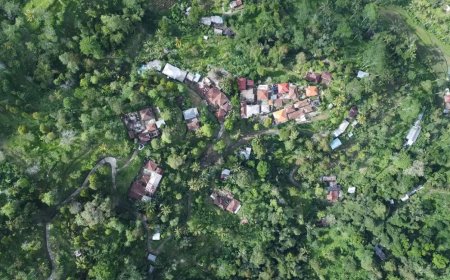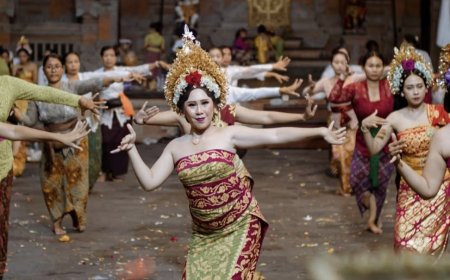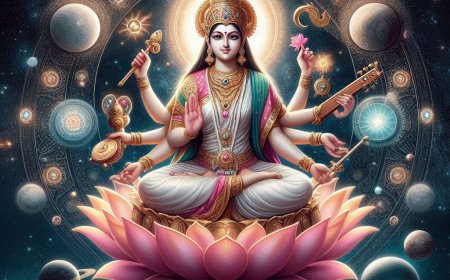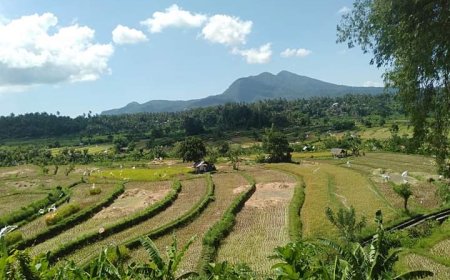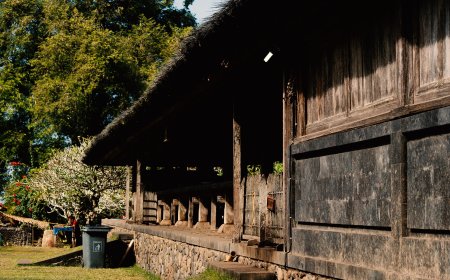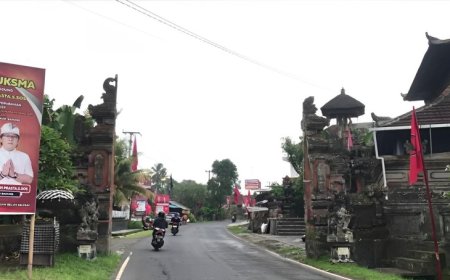Mengwi Traditional Village that is Religious, Cultured, Charismatic, and Never Sleeps
Mengwi Traditional Village, a traditional village located in Badung Regency, Bali, is a place full of charm. The village is known for its rich culture, strong religious life, and alluring charisma. Mengwi Traditional Village is also famous for its all-day activities, so it never sleeps. In this article, we will explore the uniqueness and charm of Mengwi Traditional Village that makes it so special.
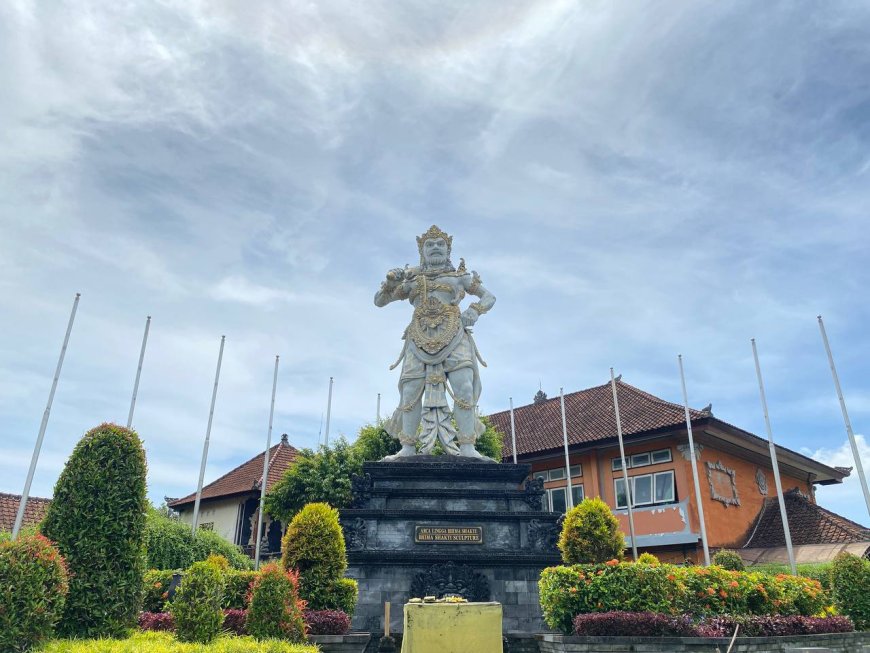
Mengwi Traditional Village is one of the traditional villages located in Badung Regency. This traditional village is very well known because of its location and is closely related to the center of the Mengwi Kingdom. The history of the establishment of Mengwi Kingdom begins with a dispute between the last king of Gelgel Kingdom, I Gusti Agung Maruti and I Gusti Ngurah Jambe in Cedok Andoga. I Gusti Ngurah Jambe was the brother-in-law of I Gusti Agung Maruti, but sided with his nephew, Dalem Jambe, who also had the right to become king. In this dispute, I Gusti Agung Maruti and I Gusti Ngurah Jambe died. The son and daughter of I Gusti Agung Maruti then fled to Jimbaran Village. They were named I Gusti Agung Putu Agung, I Gusti Agung Made Agung, and I Gusti Agung Ratih. Afterwards, I Gusti Agung Putu Agung and I Gusti Agung Made Agung became the rulers of Jimbaran Village and established Mengwi Kingdom and Taman Ayun Temple. The first throne was given to I Gusti Agung Made Agung, while I Gusti Agung Putu Agung chose to become an ascetic (who later founded the Kuramas Kingdom). During the reign of Mengwi Kingdom, a traditional village was formed which is now known as Mengwi Traditional Village. The authority given by the King of Mengwi to Mengwi Traditional Village is to manage the activities of the village community in Balinese Hindu religious ceremonies, customs and cultural arts of the community in the center of the Mengwi Kingdom.
The existence of the role of Mengwi Traditional Village since the reign of Mengwi Kingdom is still running until today. The leadership of Kelihan Mengwi Traditional Village in the village community in Balinese Hindu religious ceremonies, traditional activities, and cultural arts runs harmoniously with the leadership of the Mengwi Village Head from the civilian government. Mengwi Traditional Village which is now led by Ida Bagus Oka as Kelihan Village leads 13 traditional banjars, which are Banjar Gambang, Banjar Batu, Banjar Pandean, Banjar Pande, Banjar Munggu, Banjar Serangan, Banjar Pregae, Banjar Lebah Pangkung, Banjar Pengiasan, Banjar Alangkajeng, Banjar Delod Bale Agung, Banjar Ganter (including the Department of Abiantuwung Tabanan), and Banjar Bajera (including the Department of Belayu Marga-Tabanan). Meanwhile, the civil administration of Mengwi Village led by I Nyoman Swarjana, S.E. as Perbekel of Mengwi Village leads 11 official banjars, which are Banjar Gambang, Banjar Batu, Banjar Pandean, Banjar Pande, Banjar Munggu, Banjar Serangan, Banjar Pregae, Banjar Lebah Pangkung, Banjar Pengiasan, Banjar Alangkajeng, and Banjar Delod Bale Agung.
As in other traditional villages in Bali Province, Mengwi Traditional Village which the majority of the people are Balinese Hindus also has Kahyangan Tiga Temple as a place for indigenous people to worship Ida Sang Hyang Widhi Wasa in the Manifestation of God's Tri Majesty, which are Desa Temple as a place to worship the Majesty of Ida Sang Hyang Widhi Wasa as the Creator of the Universe and everything in it, Puseh Temple as a place to worship the Majesty of Ida Sang Hyang Widhi Wasa as the Maintainer of the Universe and everything in it, and Dalem Temple as a place to worship the Majesty of Ida Sang Hyang Widhi Wasa as the Melter of the Universe and everything in it. In addition to the Kahyangan Tiga Temple, Mengwi Traditional Village is also the caretaker of Taman Ayun Temple which is located in the northeast of Catus Pata Puri of Mengwi Kingdom. Taman Ayun Temple is a beautiful and magnificent temple surrounded by a large flower garden pond that was built during the heyday of the Mengwi Kingdom.
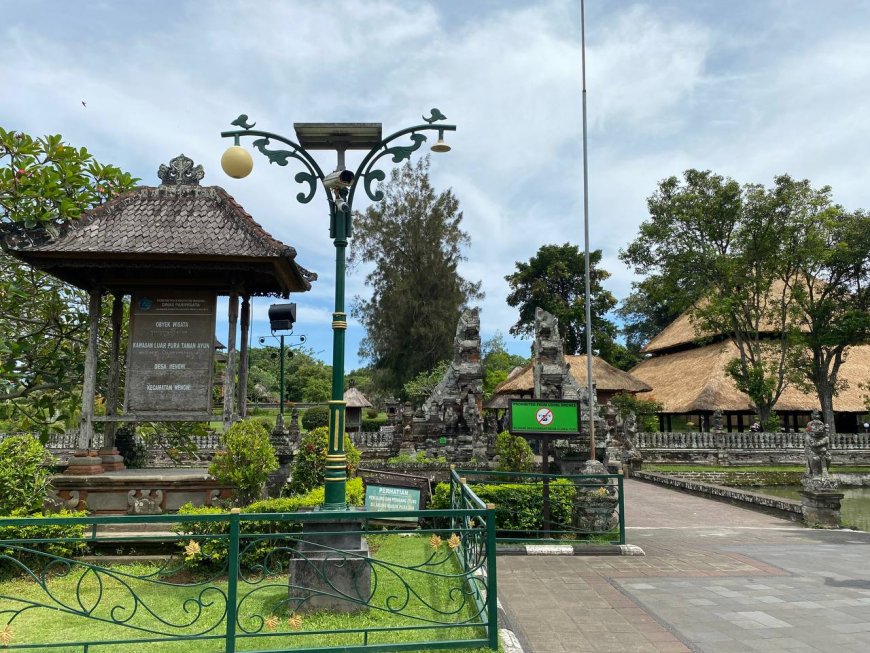
Taman Ayun Temple (Source: Author Collection)
Bali Island is famous as the island of a thousand temples, one of which is due to the existence of Taman Ayun Temple which is already very famous as a tourist destination, where every day is always visited by tourists from abroad and domestic. The existence of Taman Ayun Temple as a relic of the Mengwi Kingdom is certainly a very valuable asset owned by the Mengwi Traditional Village. In addition to Taman Ayun Temple, Mengwi Traditional Village also has a tourist icon of the Lingga Bhima Shakti Statue which stands majestically in the Bencingah Park of Puri Ageng Mengwi. The icon of the Lingga Bhima Shakti Statue was built to illustrate the history of the greatness and glory of the Mengwi Kingdom in its time. The existence of the Ogoh-ogoh Museum and Yadnya Museum, which are also owned by the Mengwi Traditional Village, has added to the collection of tourist destinations for foreign and domestic tourists who visit. With the existence of Taman Ayun Temple, Bencingah Park of Puri Ageng Mengwi, Ogoh-ogoh Museum, and Yadnya Museum owned and managed by Mengwi Traditional Village, of course this has a direct impact on the economic growth of the Mengwi Traditional Village community.

Traditional Market of Mengwi Traditional Village (Source: Author Collection)
Apart from the tourism sector, the economic growth of the Mengwi Traditional Village community is also generated from the MSME sector of the village community. Some of the people of Mengwi Traditional Village had artistic skills that have been passed down from generation to generation since the establishment of the Mengwi Kingdom. One of them is as a tedung craftsman (religious ceremony umbrella craft). Until now, the tedung craft has become one of the economic drivers of the Mengwi Traditional Village community. In addition, with the high demand for duck and duck eggs for Balinese Hindu ceremonies, some people of Mengwi Traditional Village also have skills in duck egg hatching and salted egg making. These business skills have also been passed down from generation to generation. Furthermore, the economic progress achieved by the Mengwi Traditional Village community is also complemented and sourced from the existence of the Mengwi Traditional Village Market which operates 24 hours a day. The occurrence of market economic activities 24 hours a day is due to the Mengwi Traditional Village Market being the center of the market traders, this activity starts from:
- At 23.00 - 05.00 WITA is the operation of wholesaling/transactions between traders from the village who bring agricultural products with market traders who will take them to markets in Denpasar, Kuta, Nusa Dua and other markets.
- At 05.00 - 12.00 WITA is the operation of wholesaling/transactions between Mengwi Traditional Village Market traders and villagers/small traders.
- At 12:00 - 23:00 WITA is the operation of the wholesaling/transactions between flower/janur farmers from the village with flower/canangsari traders and also the operation of the culinary market (senggol market) which sells various kinds of dishes/food and drinks.
Mengwi Traditional Village has a wealth of potential and activities. If you have the opportunity to spend 24 hours in this village, you will see and feel the diversity of culture, charisma, and activities that never stop. The village feels so religious, presenting a bustling atmosphere as if no rest is needed.
Full of life at all times, Mengwi Traditional Village is a fascinating destination with its own distinct charm. From the religious nuances to the daily activities of its people, the village provides an immersive experience for anyone looking to immerse themselves in traditional Balinese life and richness.
